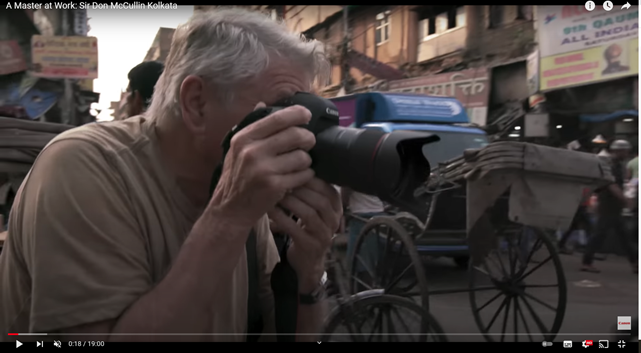News
Canon should be ashamed of themselves
stephen butler
Mar 17, 2022
I have no doubt Don McCullin was a great war photographer. Was. But this recent piece published on YouTube by Canon Europe is an embarrassment. Let me explain.
Canon sent McCullin to Kolkata in India with a couple of Canon cameras as a Canon ‘ambassador’. You can see the piece here https://www.youtube.com/watch?v=LALtLUjSeJs&t=2s
McCullin is shooting everything and everyone in his path as if he is in a zoo. T
hen comes what must be one of the most embarrassing pieces of post-colonial arrogance I have come across….McCullin comes across a man with horrific tumours on his face and attempts to photograph him. An Indian man, in an attempt to offer the man some semblance of self-respect, steps in front of McCullin to stop him from taking the shot. You can see the episode at 8:15 on the video and then, to add injury to the whole event, a still shot of the man is shown.
Now, this raises many ethical questions. The obvious one is ‘why?’ – to what end is McCullin taking that photograph and ‘why’ is Canon showing it as a still? Does it in anyway enhance the dignity of the man in the picture? No. Will it effect any change his life? No. Is it a photograph of artistic merit? No. Is it a piece of voyeuristic street photography? Yes.
It is interesting also to read the comments on that video many of which acclaim ‘Sir Don’ as being a living legend without bringing into question that he could have an out of sync moral compass.
What is so interesting about this is the gulf between this “shoot in a zoo” approach to that of the eminently thoughtful and respectful, late Tim Hetherington.
You can see something of his philosophy here
https://www.youtube.com/watch?v=9rQJAorMxJs&t=3s
In this short documentary, the difference between Tim’s philosophic and engaging approach to his subjects and McCullin’s voyeuristic approach is manifest.
Tim was the consummate photo-communicator who felt that the most important aspect of our job as documentary photographers is to communicate the world by engaging with the people whose stories we are telling – the exact opposite of being an observer and ‘clicker’. In fact, in one place Tim states that he is unable to take photographs of people unless he engages with them first.
Hugh Brownstone http://www.3bmep.com/ told me recently that there are two kinds of photographers in the world; there are photographers who ‘take something from the subject’ when they are photographing them, and there are those who are ‘giving something back to the person they are photographing’ – he put it better than that, but the point he was making was exactly this….a photographer can be a ‘clicker of events’, dispassionately observing the world, shooting from an emotional distance. Or you can give something back to the process – tell the story in a different way; represent the person through their lens, not just your own. Thanks Hugh.
In fact this is precisely what we see here. McCullin is the first type of photographer. He is taking from his subject, never engaging with them. Hetherington is the second kind, always empathizing, always wanting to give instead of always taking.
Hetherington goes on to say “I don’t think you can be a photographer from a Western country and go to Africa and not feel like you’re taking…stealing. People will shout at you in the street and say ‘why are you taking my picture, are you going to make money with that?’ “
He continues in that documentary by saying “I felt that going and working as a photographer that goes to Africa makes pictures and takes them back for a mainly Western orientated press is not right. I’m not into that any more, it doesn’t interest me. How can we effect change in Africa? It seems a very long way around the problem, I go to your country, I take a picture of your community, I take it back to my community, and publish it in the press in my community in the hope that someone in my community is going to do something about your problem – that seems an awfully long way round trying to change people’s consciousness or to effect some kind of debate.”
Just because we can (legally) take pictures of anyone and anything, doesn’t mean we should or that it is ethically right to do so.
Two very different approaches. After talking with Hugh I want my photography to move in the direction of Hetherington, and leave the "McCullin school of photography" in the last century.
997

